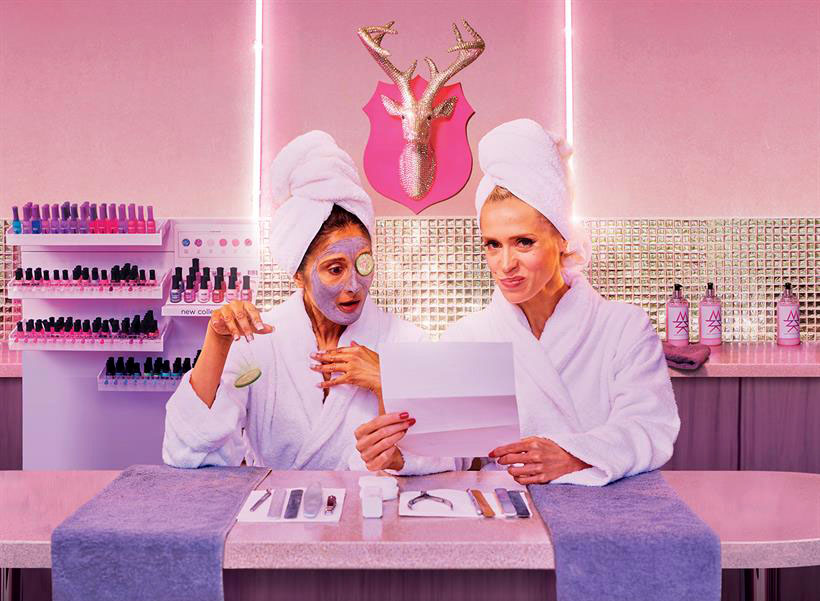
A stage set with an Elizabethan house and inn surely denotes 16th century Windsor, but no – for director Fiona Laird, the only way is Essex. In spirit at least, this production moves the town of the title east, into recent times and footballer’s wives territory. It could be subtitled Carry on Merry Wives of Chigwell.
It is a confusing place where they speak extreme Estuary English, where parking signs and electric drills co-exist with doublet and hose. The fashion conscious, however, wear the glitziest clothes, way off the taste scale with designs of screaming colours – in the case of the women, skin-tight and low of neckline
What a world for Sir John Falstaff to have to inhabit. A friend of princes and low life knaves, a comrade of brave soldiers albeit only adept at avoiding battle, and a survivor of hundreds of doubtful escapades. Legend has it that Elizabeth I herself insisted that Shakespeare resurrect the unexpected star of his Henry IV plays for this new encounter.
Cast amongst the rising middle-classes, he sets his ‘superior’ mind to seducing two rich wives Mistress Ford and Mistress Page. Sadly for him, they prove to be virtuous and resourceful, leading him on, only to punish him in humorous and demeaning ways. Whilst Mistress Page’s daughter Anne, has to evade two hapless wooers to follow the path of true love.
Merry Wives bears the fault marks of its hurried construction and is rarely revived. Characters from the Henrys are included but, his male followers apart, not linked to him. The action is limited to comic happenings, with no place for Falstaffian philosophy on greater issues.
Making it move is problematic. Here we get text cuts and, more surprisingly, additions. Mention of BREXIT seems rather tough on Elizabethans. Characters frequently illustrate every word with a nudge or a wink or a gesture, sometimes simultaneously dancing from foot to foot.
What the play also has, however, is some of Shakespeare’s comic genius, as he lovingly sets up situations and characters to glorious ends. And because it’s totally set in England, it can provide insights into everyday 16th century life. Might it work with an approach closer to the page?
It certainly seems so whenever David Troughton lights up the stage as Falstaff. Full of life and humanity, barely in control of his dangerously lurching stomach, combining cod romanticism with knowing awareness of its absurdity, delivering every ounce of the inset humour.
The scene in which he escapes from Ford household carried in a laundry basket is nicely modernised with the substitution of a wheelie bin – a disgustingly filthy wheelie bin. Shakespeare included some filthily witty lines too, now mostly lost in translation, and some of that spirit is legitimately returned.
Other roles are largely controlled by the concentration on the manic. Nonetheless Rebecca Lacy and Beth Cordingly as the outraged matrons, leave no doubt about their Cockney blitzkrieg reaction to knightly dalliance.
Vince Leigh scores double, as an ultra- jealous husband and under a different identity he assumes to gain Falstaff’s confidence. His supressed outrage when he believes the old charlatan to be succeeding is a joy to behold. And Shakespeare prefigured Allo, Allo by centuries, with Johnathan Cullen’s comic Frenchman proving that the old jokes are the best. ★★★☆☆ Derek Briggs 17th August 2018

